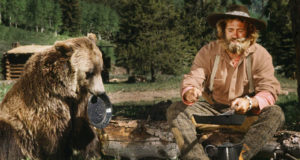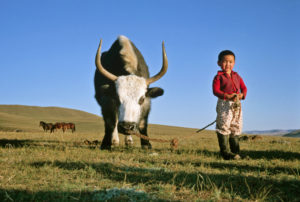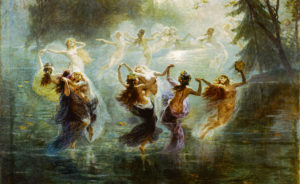I was recommended Germinal, Zola’s masterpiece about the mining strikes in northern France in 1866, by a friend, a writer I admire and respect. We were talking about the temptation to stay in our narrative comfort zones, to continually write …
Race is a delusion
How flattering to be asked to recommend an overlooked book. I have the habit of sending beloved books on to friends. This is, I know, the delusion of an amity which nowhere extends to suggestions of literature. I know that …
My apology to Salman Rushdie
Sometime in the early Nineties, I found myself standing next to Salman Rushdie at a urinal. The Groucho, it must have been. We looked away from each other with more than the usual degree of concentration. I didn’t like his …
Welcome to Philip K. Dick’s dystopia
Philip K. Dick, whose novel Do Androids Dream of Electric Sheep? inspired the film Blade Runner, did not live to enjoy his Hollywood success. He died on March 2, 1982, three months before the film was released.
In the years …
How we gave up on Salman Rushdie
The year was 1989. It was only when Salman Rushdie took his seat at the memorial service that the lethality of his predicament sank in. The remembrance for the writer Bruce Chatwin on Valentine’s Day was held at a Greek …
University needs to hurt
Reality comes in degrees, but the law must draw clear lines. English law permits the abortion of healthy foetuses up to 24 weeks after conception — but no later. It also lets you drive on your 17th birthday — but …
The last American aristocrat
Not long after the Trump election I was invited to a dinner party of the sort I’d only recently learned existed. Here’s how it goes. The host is wealthy, as are half the guests, and the other half are intellectuals …
The Tory Party belongs to Alan Clark
It has seemed in recent months as though the Conservative Party’s energy has been directed not into governing, but into the public staging of a series of thinly-conceived morality tales about the comeuppance awaiting naughty parliamentarians — stories about the …
Philip Larkin was a filthy genius
If literary reputations can be likened to a stock market, fluctuating on the tides of taste and time, Philip Larkin crashed in 1991. Until then he had been a strong buy, the unofficial post-war laureate, more synonymous with his time …
The timeless beauty of Novalis
Penelope Fitzgerald, until her death in 2000, was, by a country mile, my favourite living author. Her novels offer a view of life the wisdom of which is belied by the physical slenderness of the texts. I love all her …
Why fiction is failing Britain
Britain’s bestseller lists are usually dominated by rural parish murder mysteries, John Grisham thrillers, and historical fiction set in every age other than our own. Novels that detail contemporary life in unflinching, unsparing detail are missing. The song of our …
Why we need fairies
Some years ago, when I was a Man Booker judge, I had a running scrap with one of my fellow judges, David Baddiel. David and I got on well (we all did that year; we even went on holiday together) …
The deracination of literature
As a fiction writer who teaches, I often speak about what I love in fiction, what to me makes it powerful and engaging. This is a version of a talk I have been giving for years to students and other …
Stella Creasy’s bourgeois feminism
In his Dictionary of Accepted Ideas, Gustave Flaubert alphabetised some of the cliches and platitudes common among the French bourgeoisie during the 19th century. His aim, in his own words, was “the historical glorification of everything generally approved”. Under “Bandits”, …
Why normal people love Sally Rooney
I am suspicious of the Sally Rooney phenomenon. In particular, I suspect the claim, often made on behalf of the books, that they are an especially authentic or perspicuous representation of the experiences of young adults today.
Her novels — …














